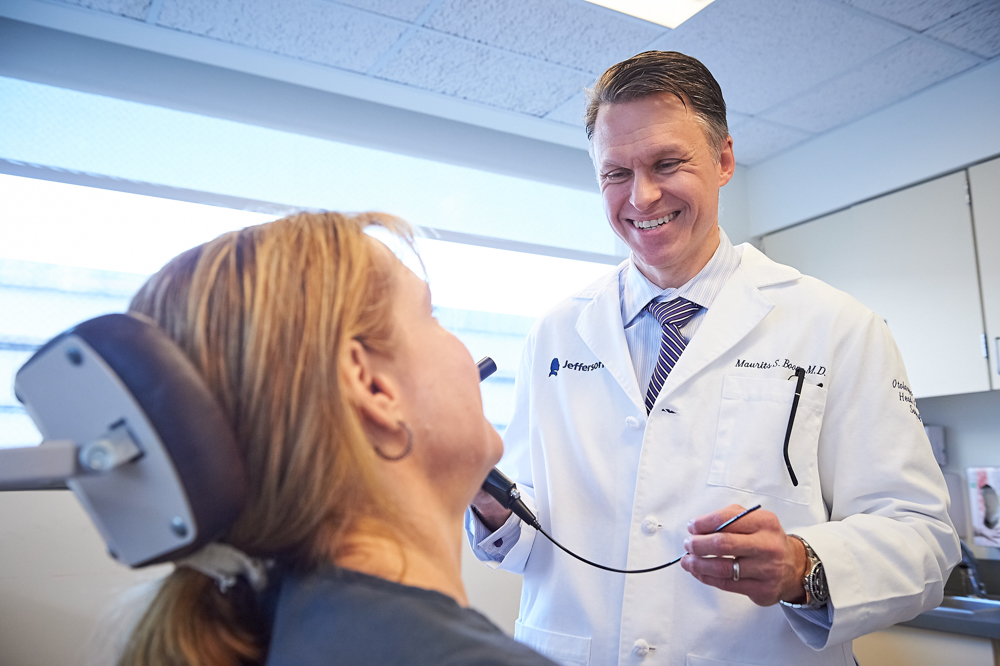Is ENT Surgery the Right Option for Sleep Disorders?
Is ENT Surgery the Right Option for Sleep Disorders?
Blog Article
Exploring the Area of Otolaryngology: What to Anticipate When You Speak With an ENT
Otolaryngology, typically referred to as ENT, incorporates the diagnosis and therapy of ear, throat, and nose problems. For those experiencing relevant issues, seeking advice from an ENT specialist can give clarity and relief. Recognizing what to anticipate throughout such assessments is vital for effective communication and care. This introduction will detail key aspects of the ENT experience, including common factors for brows through and the processes associated with diagnosis and therapy.

Comprehending Otolaryngology: A Review
Otolaryngology, frequently described as ENT (Nose, ear, and throat) medicine, is a specialized branch of medicine that concentrates on the medical diagnosis and treatment of conditions influencing these essential areas of the body. This area includes a vast array of conditions, including those pertaining to hearing, equilibrium, respiratory function, and speech. Otolaryngologists are trained to take care of both medical and medical treatments, utilizing sophisticated techniques and modern technologies. Their experience expands past standard disorders, addressing issues such as allergies, sinus infections, and hearing loss. In addition, they play a vital role in the administration of head and neck cancers, giving comprehensive care customized to specific client needs. In general, otolaryngology remains vital for keeping wellness and top quality of life in affected individuals.
Typical Reasons to See an ENT Specialist
Lots of people look for the expertise of an ENT expert for a selection of reasons, mirroring the varied nature of conditions that impact the nose, ear, and throat. Typical concerns consist of chronic sinusitis, which often brings about consistent nasal blockage and facial discomfort. Allergies and their associated symptoms, such as sneezing and itching, also motivate brows through to these professionals (Otolaryngology). Hearing loss, whether progressive or sudden, is an additional considerable factor for consultation. Additionally, individuals might seek evaluation for throat conditions, including persistent hoarseness or swallowing problems. Rest apnea, identified by disturbed breathing throughout rest, is regularly resolved by ENT professionals. Each of these conditions highlights the value of specialized treatment in managing complicated ENT-related health and wellness issues
Planning for Your ENT Consultation
When preparing for an ENT visit, it is important to gather pertinent details and take into consideration any kind of certain issues. Individuals ought to assemble a thorough clinical history, including previous ear, nose, or throat issues, surgical treatments, and existing medicines. Recording signs and symptoms-- such as duration, extent, and regularity-- can give useful understandings for the ENT specialist. In addition, people ought to prepare a listing of concerns they want to ask, making sure that all problems are attended to during the go to. Bringing along any kind of pertinent medical documents or examination results can further aid the ENT in understanding the person's condition. Ultimately, clients should verify their appointment details, consisting of date, place, and time, to reduce any type of last-minute confusion. Proper preparation can enhance the efficiency of the assessment and lead to better outcomes.
What to Anticipate Throughout the Examination
As the appointment begins, the individual can anticipate to participate in a detailed conversation with the ENT expert regarding their signs and clinical background. The expert will ask about the period, regularity, and severity of symptoms such as hearing loss, nasal blockage, or aching throat. Furthermore, the patient's previous medical conditions, medications, and any kind of pertinent family members history will be reviewed, aiding the specialist in forming a full understanding of the individual's health. The ENT might additionally ask concerning way of life variables, such as exposure to allergens or toxic irritants. This open dialogue develops a structure for the assessment, ensuring that the client's problems are dealt with and setting the stage for any type of essential examinations or referrals for therapy.
Analysis Examinations and Treatments in Otolaryngology
A range of diagnostic tests and treatments are important in click now otolaryngology to precisely review and identify problems influencing the ear, nose, and throat. Typical tests include audiometry, which gauges hearing feature, and tympanometry, examining middle ear stress. Nasal endoscopy allows visualization of the nasal flows and sinuses, while laryngoscopy analyzes the throat and vocal cords. Imaging methods, such as CT scans and MRIs, provide detailed sights of head and neck structures. Allergic reaction screening may likewise be performed to determine triggers for sinus or breathing concerns. These diagnostic devices allow ENT experts to create a complete understanding of patients' problems, making sure customized and reliable monitoring strategies. Correct medical diagnosis is important for effective treatment results in otolaryngology.
Therapy Choices Supplied by ENT Specialists
ENT specialists offer a selection of treatment options tailored to attend to certain conditions affecting the nose, throat, and ear. These treatments range from conservative nose rinse techniques, such as medication and lifestyle adjustments, to even more invasive treatments. As an example, allergic reactions might be managed with antihistamines or immunotherapy, while persistent sinusitis may call for nasal corticosteroids or sinus surgery. For hearing loss, ENT specialists typically recommend hearing aids or surgical interventions like cochlear implants. In cases of throat problems, options can include speech treatment or procedures to eliminate blockages. Furthermore, they may provide assistance for managing rest apnea, including using CPAP devices or surgical interventions. Overall, the objective is to boost clients' top quality of life through individualized care and effective therapy techniques.
When to Seek Follow-Up Treatment With an ENT
When to seek follow-up treatment with an ENT specialist is essential for taking care of continuous symptoms or difficulties connected to ear, nose, and throat problems, recognizing. Individuals ought to take into consideration arranging a follow-up visit if signs and symptoms linger regardless of preliminary treatment, such as chronic ear pain, nasal blockage, or throat discomfort. Changes in hearing, balance issues, or unusual nasal discharge might additionally warrant more evaluation. Furthermore, if a patient experiences negative effects from suggested medicines or has gone through an operation, follow-up treatment is necessary to monitor healing and deal with any kind of worries. Timely assessments can guarantee reliable management of conditions, prevent potential issues, and supply comfort relating to one's wellness. Looking for follow-up care promotes positive wellness administration in otolaryngology.
Often Asked Inquiries

What Credentials Should I Search for in an ENT Professional?
When looking for an ENT specialist, one ought to seek board certification, relevant experience, and strong patient testimonials. Furthermore, efficient interaction skills and a caring method can considerably boost the overall therapy link experience.
Just how Do I Pick the Right ENT for My Demands?
Selecting the appropriate ENT specialist entails assessing their qualifications, experience, and patient testimonials (ENT surgery). It is vital to consider their communication style and approach to therapy, ensuring they line up with the individual's details wellness needs and preferences
Are There Any Dangers Related To ENT Procedures?
The threats connected with ENT procedures might include infection, bleeding, anesthesia difficulties, and prospective damages to bordering structures. People must talk about these risks with their physician to understand individual issues and assurance educated decisions.
How Can I Take Care Of Anxiousness Before My ENT Appointment?
To take care of stress and anxiety before a consultation, people can exercise deep breathing workouts, visualize favorable end results, prepare questions in advancement, and look for assistance from buddies or family members, promoting a sense of peace of mind and calmness.
What Should I Do if I Experience Adverse Effects From Therapy?
The person needs to without delay report them to their health care service provider if side effects from therapy happen. Adjustments to therapy or extra interventions might be essential to ensure security and effectiveness in handling their problem - ENT Clinic. As the assessment begins, the person can anticipate to involve in an extensive conversation with the ENT specialist about their symptoms and clinical history. These analysis tools enable ENT professionals to establish a comprehensive understanding of patients' problems, guaranteeing customized and efficient monitoring plans. ENT specialists use a variety of therapy choices tailored to resolve particular conditions influencing the ear, throat, and nose. When looking for an ENT specialist, one need to look for board accreditation, relevant experience, and strong client evaluations. Choosing the ideal ENT expert includes assessing their certifications, experience, and person reviews
Report this page